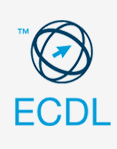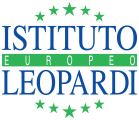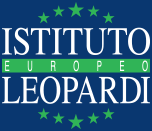– SPORTS SCIENCES HIGH SCHOOL –
THE UNDERSTANDING AND PRACTICE OF SPORT WITH ACCESS TO ALL UNIVERSITY FACULTIES
This course gives the right response to the educational requirements of a Scientific High School, also reinforcing the study of mathematics, with increase in the weekly hours, providing a useful preparation for the subsequent access to University courses. It offers the possibility of dedicating more time to sports activities as requested by many adolescents, whether they are already participating in competitions even at a high level, or are simply enthusiasts. The study of the law and economics of sport in the three-year period allows the students to learn about the structure and operation of sports companies and to explore, also in regulatory terms, the world behind a sports event. The timetable, with duration of lessons in line with regulations, does not exceed 30 hours per week and is spread over five days, also to help students who take part in competitions. The course also provides for the option of personalised teaching to recover lessons that were missed due to training and competitions
OBJECTIVES
- Improvement of English language to attain a First Certificate level on completion, and possibility of further advance to achieve a IELTS certificate;
- Attainment of Cambridge IGCSE certificates for subjects studied in English;
- Acquisition of command of computer skills required for practice and application in scientific subjects;
- Development of inclination to cooperative work and digital technologies;
- Preparation and attainment of ECDL certificate;
- Acquisition of an education that permits the continuation of studies at University, following medical, paramedical, scientific and technological degree courses;
- Preparation in Sports subjects and the Law and Economics of Sport in order to access specialisation courses in Sport Business, Sport Management, Sport Journalism and legal professions related to sport;
- Development and acquisition of soft skills and non-cognitive skills required in the workplace.
EDUCATIONAL TOOLS
- High level external structures for the practice of sports in agreement with Entities and Companies in the area;
- Classrooms set up as laboratories, with interactive whiteboard (IWB), cabling and Wi-Fi coverage;
- Computer lab set up also for robotics course;
- Class kit for scientific lab experiments;
- Digital education and tablet for every student;
- Multimedia room for meetings, conferences and lessons;
- Gym and sports equipment.
METHOD
- Stimulate active participation in lessons and in the classroom in general;
- Encourage cooperation and teamwork through the “cooperative learning” method;
- Teach English and reinforce the study of a second language with the international method: focus on comprehension and communication;
- Use “Problem Solving” to train students to use logic;
- Perfect skills of analysis, summary and critical thought;
- Use teaching workshops for all subjects;
- Do part of the school-work alternation (PCTO) abroad;
- Deal with the preparation of subjects in English with possibility of taking IGCSE exams;
- Organise meetings relating to the choice of University or insertion in the world of work;
- Promote the habit of commitment and responsibility;
- Develop the sense of personal responsibility and that of loyalty towards oneself and other people.
TIMETABLE
| Subjects | 1st | 2nd | 3rd | 4th | 5th |
|---|---|---|---|---|---|
| Italian language and literature | 4 | 4 | 4 | 4 | 4 |
| English as 2nd language * | 3+1 | 3+1 | 3 | 3 | 3 |
| History, Geography, Citizenship and Constitution | 2+1 | 1+1 | – | – | – |
| Exercise and sports sciences | 3 | 3 | 3 | 3 | 3 |
| Sports disciplines | 3 | 3 | 2 | 2 | 2 |
| Sports Law and Economics | – | – | 3 | 3 | 3 |
| Mathematics and Information technology | 1+4 | 2+3 | 2+3 | – | – |
| Mathematics and Information technology | – | – | – | 5 | 5 |
| History | – | – | 2 | 2 | 2 |
| Philosophy | – | – | 2 | 2 | 2 |
| Physics | – | – | 2+1 | 2+1 | 3 |
| Physics | 2 | 2 | 3 | 3 | 3 |
| Natural sciences** | 2 | 3 | 3 | 3 | 2 |
| Art and history of art | 2 | 2 | – | – | – |
| Religion | 1 | 1 | 1 | 1 | 1 |
| Totals | 29 | 29 | 30 | 30 | 30 |
* Of which one hour in first and second grades in mother tongue to prepare for language certificate
Certificates


EXTRACURRICULAR ACTIVITIES
- Study of robotics with the aim of attaining certification of the ability to use and programme industrial robots;
- Guided afternoon study;
- Internship in English speaking countries (England, Scotland, Ireland);
- Cultural exchanges with students from various EU countries;
- Visit to internationally renowned scientific labs;
- Communication and Creative Writing techniques;
- Education in volunteering;
- Theatre workshop;
- Financial education;
- Qualified meetings on the issue of Social Networks and their correct use.

